October 2nd, 2020 marked the 20th anniversary of ‘Musique’, an album considered both essential and controversial in Theatre of Tragedy discography. Many things happened within the band in those days. Although they were difficult times for Theatre of Tragedy, they played well their cards, by putting all their conviction and belief on what they were doing. You could either love it or hate it, but ‘Musique’ is certainly a key album to understand what happened to the greatest bands of doom and of gothic music styles towards the end of the last century and the beginning of the current one, and it is also essential to understand the relationship between metal music and electronic. Relationships were the topic of my conversation with the friendly and gentle Lorentz Aspen, we talked about personal and musical relationships, about people and music, about sensation and appreciation, amongst many other things. She didn’t kept anything from me. She used all candor and serenity to revive memories of a mixed feelings phase of her life, by answering my questions, some of them more uncomfortable than others.
By Marc Gutiérrez
EMPIRE MAGAZINE (EM): I think you moved to Houston and you are living there now. How are you doing in a new city?
LORENTZ ASPEN (LA): I’m doing fine thanks. We are here for some years in relation to an expat assignment for my wife. Allthough I have visited Houston and the US a couple of times before it is quite different to be staying here with the family. We find it to be a very comfortable life in our situation.
EM: Since ‘Aègis’ was the most successful album in your history as a band, the easiest decision could have been to make a similar album again (as you did in ‘Velvet darkness they fear’ with your debut album). Why did you choose to include electronic music into your sound?
LA: The development of the music has always been a natural step. As “Velvet” became a more mature version and natural progression of the debut album, Aegis turned to a more mellow, softer goth type of music. We have always had an ear to electronic music and found inspiration in that type of music, but for Musique certain changes and also need for change and explore new boundaries of our own music became a great motivation to pursue this direction.
It would be not true to ourselves or our following if we would try to “copy” ourselves and I also think it would be harder than actually working out music which motivated us.
EM: Hein is a NIN fan and Ray loves Kraftwerk and other electronic music bands. Do you believe this fact was essential to embrace electronic music? Were you keen on electronic music before ‘Musique’?
LA: Yes most of us in the band had an ear to electronic music from industrial pioneer, to dark-pop, ebm and those type of genres. For my part Depeche Mode had a large impact from early on.
LORENTZ ASPEN
EM: How did Nuclear Blast react when they first listened to ‘Musique’?
LA: I do not think they were to eager to do anything about it, but they were professional and gave their support. NB had a license for the rest of the world, while EastWest had the license for Germany and Germany being our biggest market took the largest risk.
It was a huge change, and we even considered a name change for a while, but that seemed to be a bigger risk than the change in musical direction and we were still the same guys making the music so it didn’t make sense in the end.
EM: Today, 20 years after the release date, to me it looks like a false step to publish this album with Nuclear Blast -being as it is a Metal label- while ‘Musique’ consists of electronic music. Would you agree with me? What would you think of these confrontation/contradiction 20 years later?
LA: I do not think there was a mistake, but we should have worked harder (more touring and promotion) to get our music played for a broader audience. We lost a few ears from our early years, but didn’t manage to replace them sufficiently with new ears.
So it was kind of a new start even though we had been around a few years. So we needed to “break out” of our box. With box I mean what people might prejudice our music to be,
EM: Were you thinking of the fans reaction when you were making ‘Musique’?
LA: Of course, we found it both a bit scary and interesting. We knew that many people would react, but we needed to do our music our way to progress as musicians and also keep it interesting for ourselves.
EM: In my opinion, guitarists define the sound of this band. I mean that the style of the band has changed with each new guitarist. Tommy Lindal from ‘Theatre of Tragedy’ to ‘A rose for the dead’; Tommy Olson and Frank Clausen in ‘Aègis’; Frank Claussen in ‘Musique’; Frank Claussen and Veggard Thorsen from ‘Assembly’ to ‘Forever is the world’. Maybe they are not always the main composers but the most musically significant changes coincide with guitarist changes. Would you agree with me? If yes, could you tell me some reasons why?
LA: We have always written our songs collectively, so everyone has played their part in developing a song or the songs on an album. That said, there has been different ways of writing songs during our career and who has composed the majorities of the riff/melodies.
Although the change can be seen together with the change guitarists for many parts, it has more to do with that the group dynamics and creative process in the band changed, rather than it being that the guitarists have been the main composers.
EM: Through late 90’s and early 2000’s most important bands in Doom and Gothic Metal changed their style to include electronic elements: Theatre of Tragedy – Musique (2000), Paradise Lost – Host (1999), Anathema – Alternative 4 (1998), My Dying Bride – 34.788% complete (1998), Crematory – Act seven (1999), Evereve – E-Mania (2001) and Samael – Eternal (1999) as most important acts. Were you in contact with these bands and talked about new musical directions? How would you explain the evolution of all these bands in those years?
LA: We weren’t in contact with any of the bands to my knowledge. I have always been a huge My Dying Bride fan, and I really liked what they did on 34.788% and the album. It has some very good songs on there.
My guess is as good as you’re on why they change for an album or for the rest of the career. Natural progression and also the motivation to explore and try out different genres and incorporate that into a way that feels good musically would be my guess.
I seldom have met musician that only listen to the same type of music they play themselves, so I think a lot of musicians have a variety in taste and inspiration and sometimes finds the need to explore and utilise this in their own music.
EM: What happened with Eirik Saltro? Why did he left the band? Did he felt that his instrument couldn’t fit with new musical direction, personal reasons? How is your personal relationship now?
LA: He left on good terms and we are still acquaintances. No issues with him leaving, but for all of us it has been a juggling of music, family, work, school, payments etc to keep us aflot. And if you want to music you might have to sacrifice a lot of the others for a period.
LORENTZ ASPEN
EM: What’s about the personal relations between the band members? Someone told me you tried to kick Liv out of the band at least three times. If this is true, what happened in the ‘Musique’ days? And if it is true, could you tell me the reason or reasons to feel it that way?
LA: Well there has been some drama during the years. It could be worth to write a book about it all. I don’t want to get into much details, but we had one meeting were our future with Liv was discussed in 1996/97 I believe. And probably 6 years after that meeting, we parted ways. For Musique however we had a very good working and social relationship with Liv.
EM: How did Liv and Alexander Krull’s relationship influence the band? Specially, as they got married on July 3rd 2003.
LA: Of course her becoming together with Alex who was a part of our record company at the time, alienated some of possible managers we wanted to work with, and also we became quite cautious on communicating internal band affairs and also musical directions etc as a consequence.
EM: What was the situation of Liv in the band in those days? Did she wrote any lyrics or music?
LA: Liv was instrumental in making vocal lines for her whole ToT career. They way we ended up writing songs, was that the songs were more or less finished in their structure, melody and riffing before vocals came on or were created.
EM: Liv has met several times with Hein, Vegard, Frank or Tommy Lindal and they have even rehearsed together. What is your relationship with Liv right now? Have you spoken to her lately?
LA: Our relations are good, although we don’t speak/meet often, we may exchange sms from time to time. Haven’t spoken with any members in the last 1,5 years since I moved to US (which also made me miss out on the rehearsal), but we keep in touch by messaging. Hein is keeping all informed about happenings related to the band and do all the administrative work so we are in regular contact.»
EM: What’s about your relation with Liv these days?
LA: Our relations are good, although we don’t speak/meet often, we may exchange sms from time to time. Haven’t spoken with any members in the last 1,5 years since I moved to US (which also made me miss out on the rehearsal), but we keep in touch by messaging. Hein is keeping all informed about happenings related to the band and do all the administrative work so we are in regular contact.
EM: With ‘Musique’ you did one of your biggest European Tours with Lacuna Coil and Beseech? What are your memories about that tour? I meet you in Barcelona for the very first time in my life and that was an unbelievable night for me!!!
LA: That was an awesome tour. Our first headliner tour and we had quite a cool stage setup. Allthough we were in the middle of our change of musical direction, I think we managed to play a good show for both people liking the old stuff and the new stuff. I loved being able to visit so many places and play for so many people in places we never had been before. The crew and Lacuna Coil and Beseech were good fun to be with as well.
EM: To be honest, the new ‘Musique’ edition does not contain a very interesting material for me. The song “Quirk” is the first version of “Image”, and it was included in the Metal Mind reissue; and “The new man” was a bonus track in the digipack edition. Also “Image” French version was part of the ‘Machine’ single. Did you think to include some live unreleased footage at some point? Or would you consider this option for the future?
LA: There isn’t much live clips with good sound or picture from these days and we didn’t do any professional recording either. I have recorded some of the shows on my camcorder digitally, but they are pretty boring straightforward filming with poor sound. They are still on DV cassettes, maybe I should upload them to YouTube. But anyhow, it is not in any format to be released.
LORENTZ ASPEN
EM: What can we expect of the future? More solo projects? More re issues?
LA: You can maybe expect more re-issues. I’m not sure about solo-projects. Hein is playing in Black Locust Project, and Frank is playing guitar for Hovering Orville. Liv is still doing music. But the rest of us is still “hanging around”. I have a setup here in Houston and play and record some stuff. But no plans of doing anything about it yet.
EM: Two questions in one: Would you like Theatre of Tragedy to meet in the future? Do you think Theatre of Tragedy will meet in the future?
LA: I would like to, sure! I think it would be great fun. But I think it is a longshot that it would happen. Although we are on good terms and able to speak freely and open to one another. If the band would meet under Theatre of Tragedy again the terms for that means needs to be sorted out, and from there you need to see how that would motivate members to commit. Not sure if we would get everybody on the bus and nobody should be “forced” into it either, it should be on “all good fun” terms.


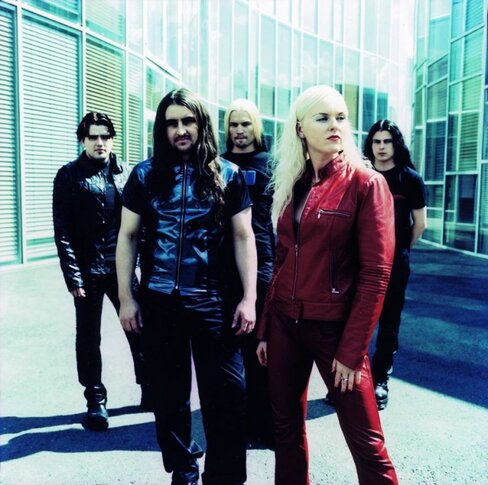
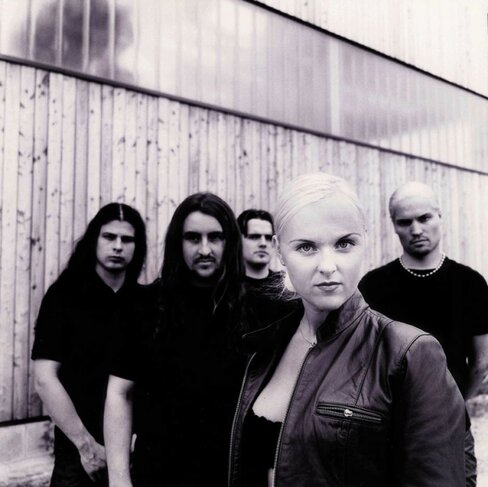
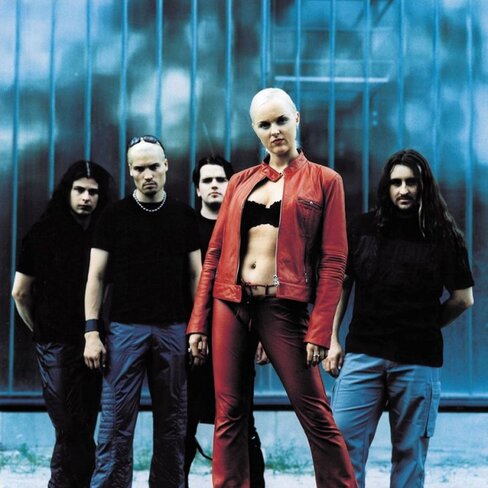
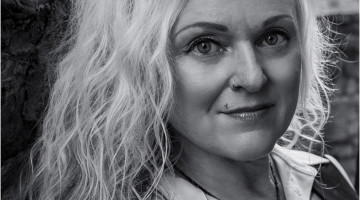

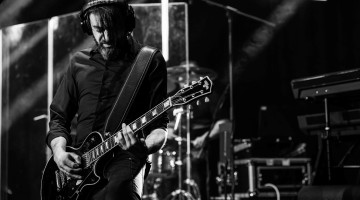
Sin Comentarios